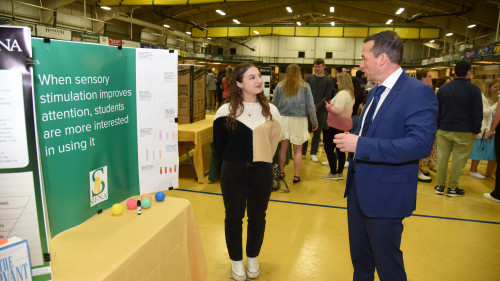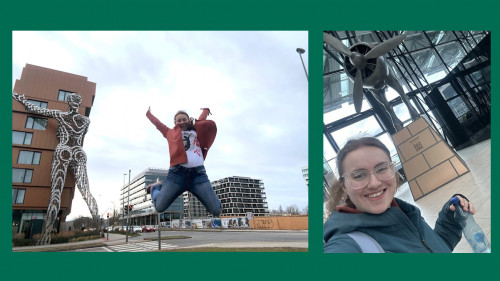
By Mary Barrett '14
As children, we’re taught to tell the truth. Old adages like “the truth shall set you free,” and “honesty is the best policy,” are common American phrases. Still, Siena College students have been learning that some countries will go to great lengths to keep the truth hidden. Students were given a first-hand account of the implications of those cover-up efforts from Eduardo Gonzalez, director of the Truth and Memory Program at the International Center for Transitional Justice.
Gonzalez spoke about truth commissions. He said they’re established to determine the facts, causes and consequences of past human rights violations and to provide victims with recognition after years of their voices being silenced or ignored. Still, Gonzalez said that some countries won’t allow truth commissions to occur, forcing accurate accounts of important and historic events to remain concealed.
During his talk, Gonzalez explained that if a regime can control history, it can control what people believe. While people in some countries have learned the truth about their collective past, other governments have blocked their citizens from finding out what actually unfolded.
Professor of Political Science Vera Eccarius-Kelly, Ph.D. teaches comparative politics and focuses on Latin America and the Middle East. Her students have looked at why certain parts of the world have the ability to use truth commissions while other parts face obstacles.
Eccarius-Kelly said Gonzalez’s first-hand knowledge provided her students with a unique perspective. “It is really powerful when you listen to someone who is a citizen of a country and talks about their family and their family experiences as opposed to someone who just studies it,” said Eccarius-Kelly.
Professor of Political Science and Director of the Globalization Studies Program Jean Stern, Ph.D. teaches a class called Children in War and Work. It studies what happens when children are reintegrated into civilian life after being forced into war or the workforce. “Unless there is peace within the community, these child soldiers cannot be accepted back,” said Stern. The students in her class found that truth commissions were one way of helping these splintered communities rebuild.
Layvon Washington ’14, a political science major in Stern’s course said hearing Gonzalez speak rounded out his understanding of what was being covered in class. “We received the opportunity to hear from someone who has first-hand experience with truth commissions, which is much more beneficial in understanding their role in society than just reading it in a textbook and not fully understanding the critical role they play in rebuilding communities,” said Washington.
In listening to Eduardo Gonzalez discuss the impact and importance of truth commissions, students developed a deeper understanding of how what they were learning in the classroom applied to the outside world. In the process, they also learned that there’s merit behind the old saying, “there’s two sides to every story, and then there’s the truth.”



